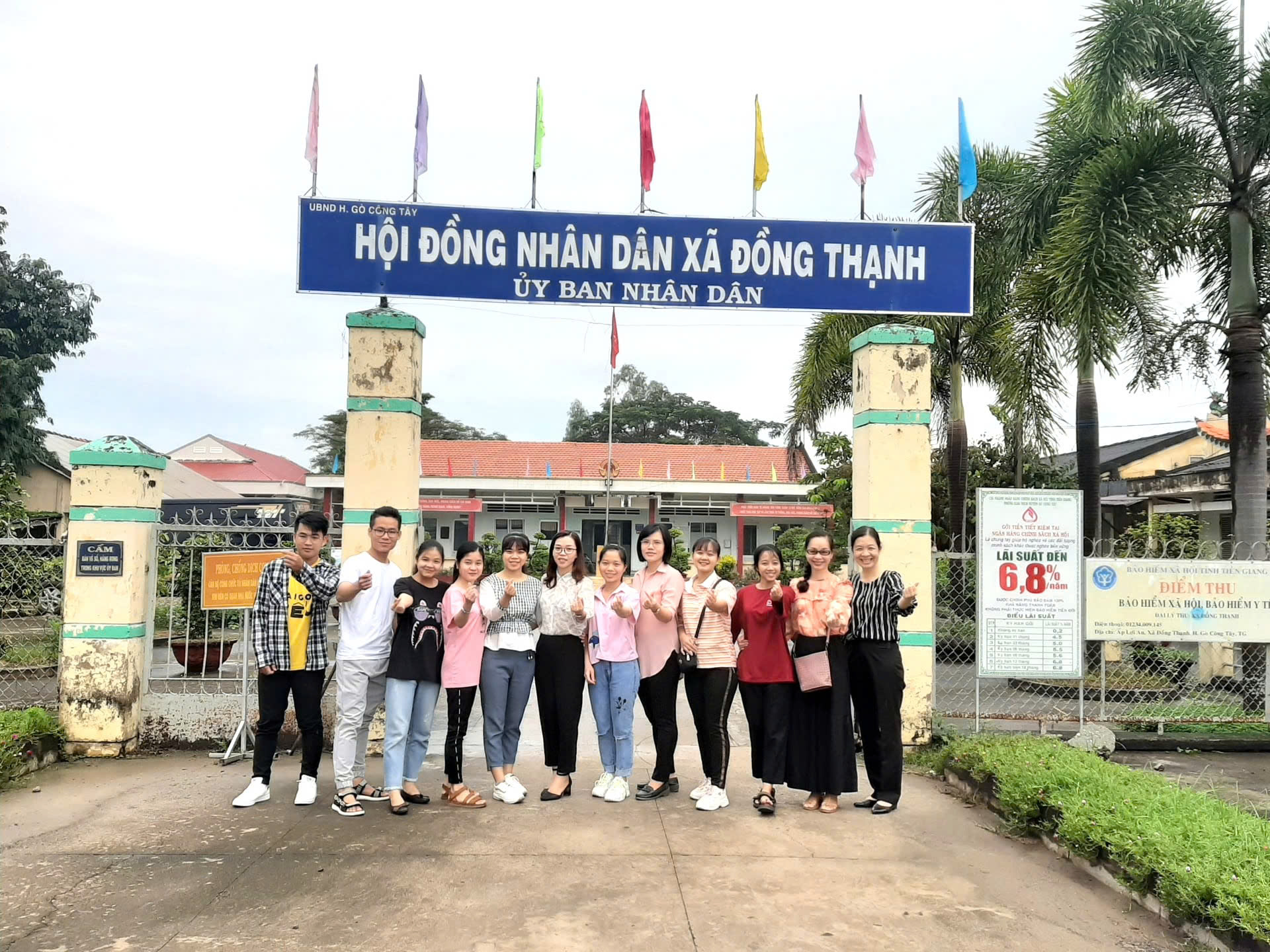In response to the impacts of salinity intrusion on agricultural production in the Mekong Delta, husbands and wives within the same household adopt different adaptation strategies, influenced by multiple factors. This is the key finding of a study published in Mitigation and Adaptation Strategies for Global Change (Springer Nature, Q1) in February 2025, conducted by Dr Dang Le Hoa and Dr Pham Thi Hong Nhung – lecturers in Economics, Becamex Business School, Eastern International University (EIU), together with their collaborators.
The research is part of a project on adaptation to salinity intrusion in rice production. The project is funded by the Environment for Development (EfD), a global network of research centers focused on environmental economics.

Dr Dang Le Hoa (far right) and the research team
Climate change is intensifying saltwater intrusion in the Mekong Delta, severely affecting agricultural productivity and farmers’ livelihoods. However, the adaptation strategies chosen by husbands and wives within the same household differ, due to gender-based disparities in access to information, educational attainment, social roles, and opportunities to participate in local organizations.
The research team surveyed 117 rice-farming couples across three coastal provinces: Tiền Giang, Bến Tre, and Sóc Trăng. Data were collected separately from husbands and wives on their perceptions, experiences, coping strategies, levels of loss, and access to training programs and community groups. Binary logistic regression and negative binomial regression models were then applied to identify the factors influencing both the number and types of adaptation strategies adopted.
The findings reveal that husbands and wives tend to select different coping measures. Specifically, wives lean toward changing rice varieties, conserving water, and diversifying income sources, while husbands are more inclined to reduce cropping intensity, switch to alternative crops, and adopt water-saving irrigation technologies.
The study also found that educational attainment and participation in social organizations significantly influence the number of adaptation measures chosen by wives, whereas economic factors, such as household income and crop losses, play a more decisive role in the husbands’ decisions.
In addition, the research revealed that women have fewer opportunities than men to participate in training sessions and community groups, due to barriers related to time constraints, social perceptions, and family responsibilities.
To strengthen the adaptive capacity of farming households—particularly women—in the context of climate change, the study recommends enhancing education and developing training programs tailored to rural women. It further suggests designing training sessions with flexible schedules and locations to facilitate women’s participation, while encouraging greater involvement in local organizations such as the Women’s Union and Farmers’ Union to expand social networks and access to information channels. Moreover, climate change adaptation policies should incorporate a gender-sensitive perspective in their design, rather than adopting a gender-neutral approach.
See the research article: Farmers in the midst of climate change: an intra-household analysis of gender roles on farmers’ choices of adaptation strategies to salinity intrusion in Vietnam


